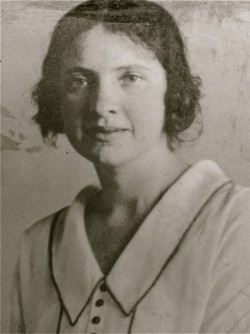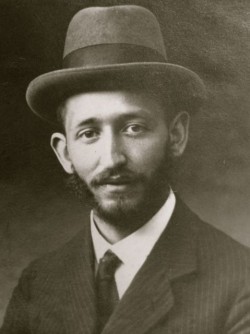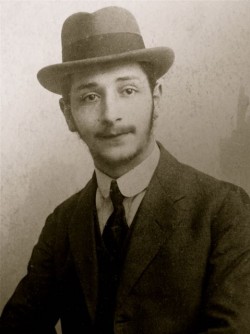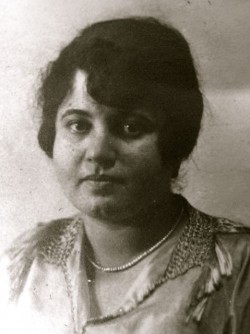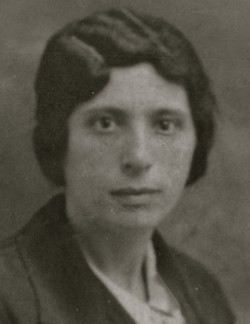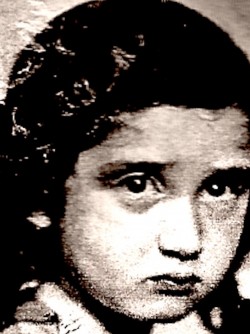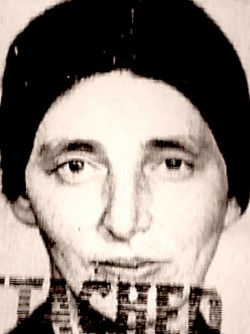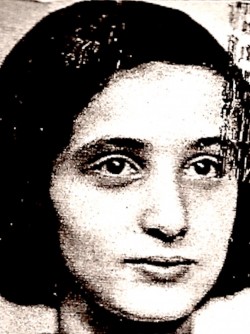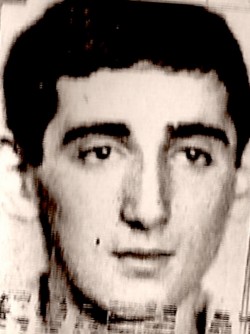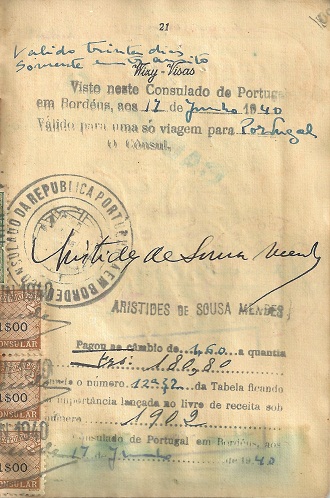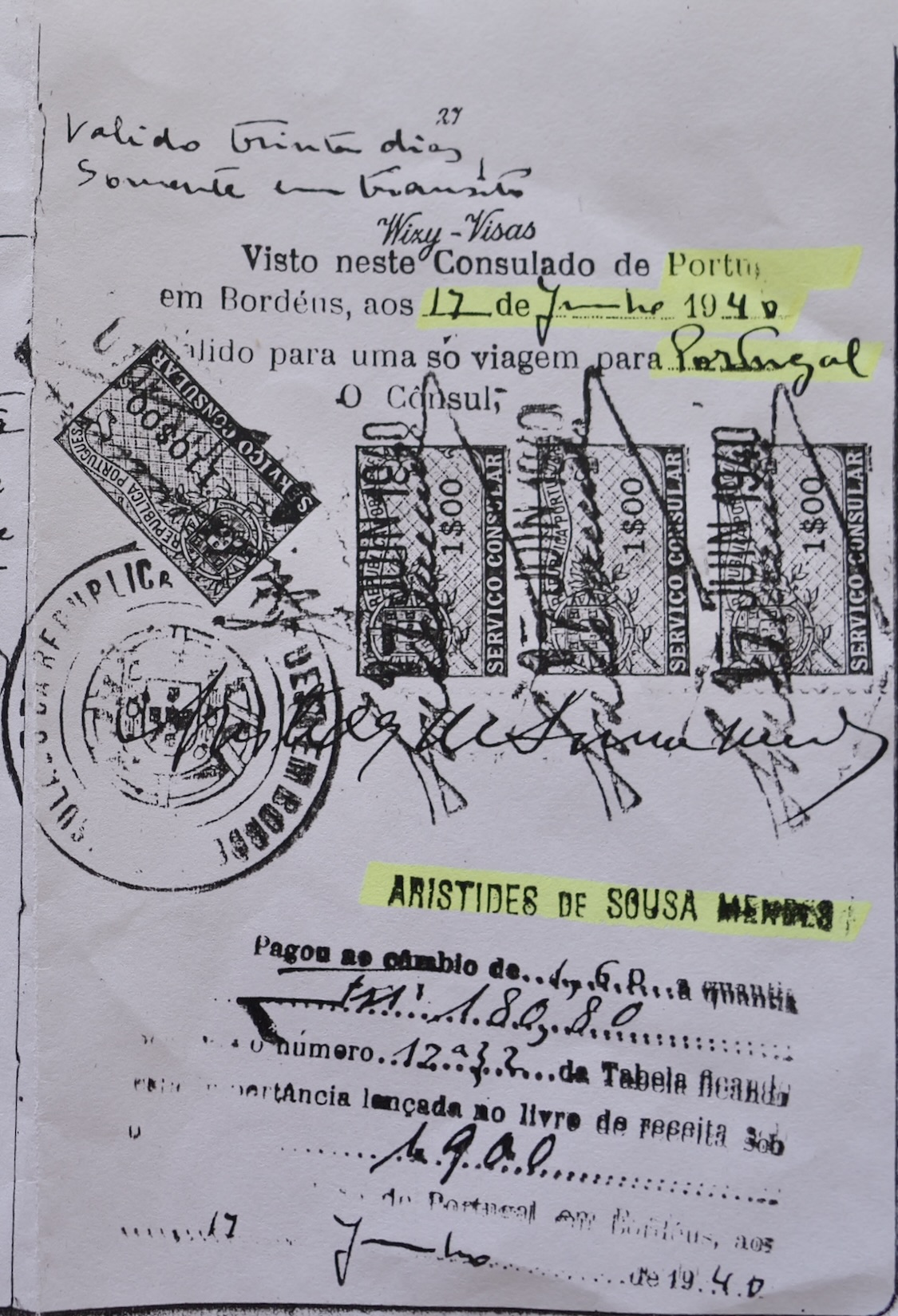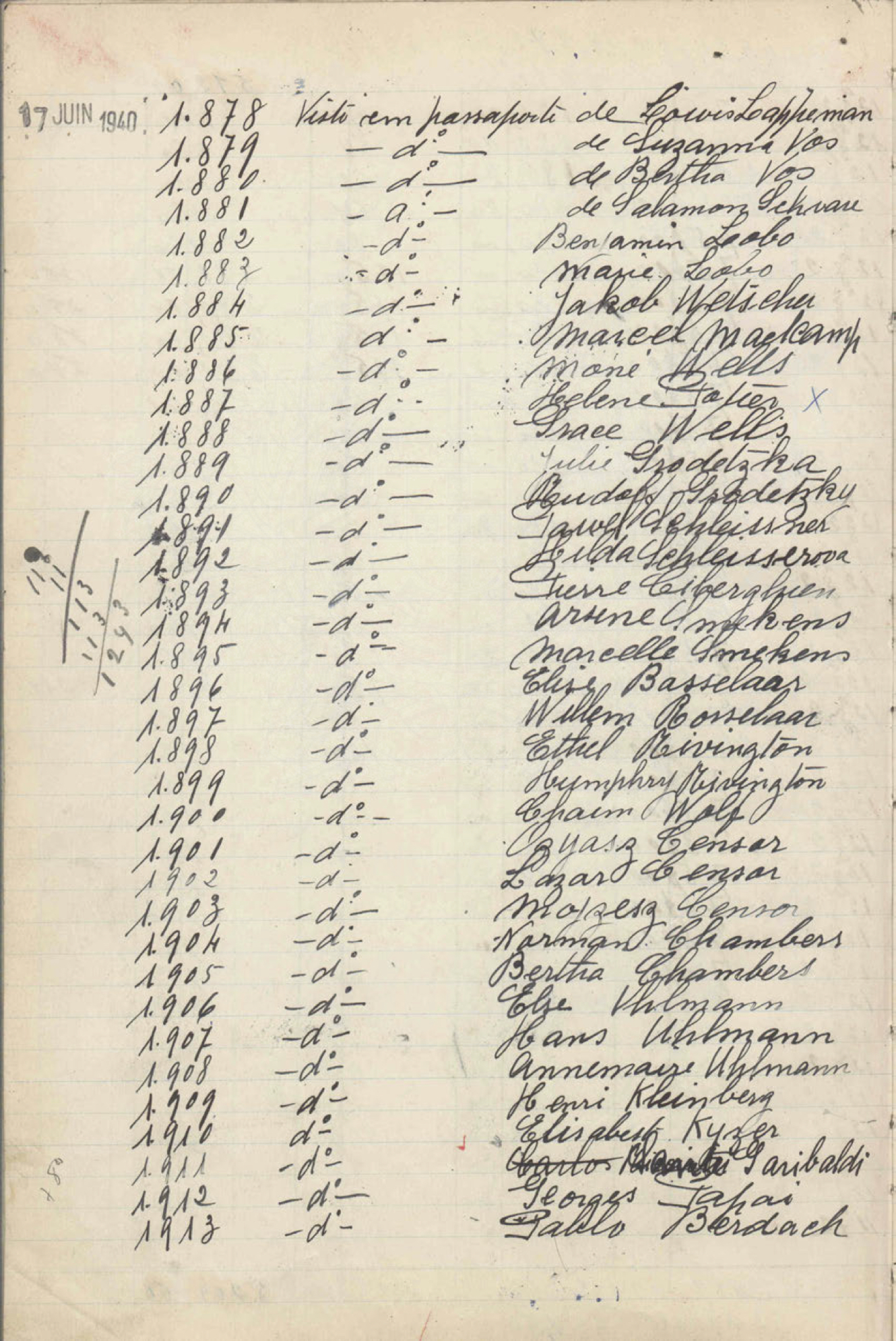Censor/Rottenberg/Wolf
Visa Recipients
- CENSOR, Berish Bernard P
Age 16 - CENSOR, Esther/Escia née SCHORR P
Age 37 - CENSOR, Etta Freida P
Age 17 - CENSOR, Ettie P
Age 8 - CENSOR, Jacob V P
Age 9 - CENSOR, Lazar P A
Age 45 | Visa #1902 - CENSOR, Mojzesz A
Age 59 | Visa #1903 - CENSOR, Ozyasz/Shiya P A
Age 42 | Visa #1901 - CENSOR, Paula P
Age 11 - CENSOR, Pearl
Age 3 - CENSOR, Rachel P
Age 14 - CENSOR, Rosa Chaja née SCHORR P
Age 41 - CENSOR, Temerla née GUTWIRTH
Age 56 - CENSOR, Willy Wolf P
Age 13 - ROTTENBERG, Anna
Age 13 - ROTTENBERG, Charles
Age 15 - ROTTENBERG, Charlotte
Age 7 - ROTTENBERG, Natalie
Age 10 - ROTTENBERG, Rosa née GUTWIRTH P
Age 44 - WOLF, Annie V A
Age 2 - WOLF, Chaim Baruch P A
Age 39 | Visa #1900 - WOLF, Frania née CENSOR P A
Age 40 - WOLF, Pearl P A
Age 11 - WOLF, Willem/Zev P A
Age 12
About the Family
The numbered visas listed were issued by Aristides de Sousa Mendes in Bordeaux on June 17, 1940.
This extended family crossed into Portugal, residing first in Vilar Formoso, then in Curia, and by the end of September 1940, in Porto. Mojzesz and Temerla CENSOR sailed to New York on the Serpa Pinto in December 1940. The ROTTENBERG family sailed on the vessel Lourenço Marques from Lisbon to New York in January 1941. Families of Ozyasz CENSOR, Lazar CENSOR, and Chaim WOLF sailed from Portugal to Cuba and from there waited to receive visas to the US, as evidenced by an US visa application for the WOLF family in Cuba in 1942. Szymon GUTWIRTH, the brother of Temerla CENSOR and Rosa ROTTENBERG, also received a visa from Aristides de Sousa Mendes and emigrated through Portugal. Their cousin Henri FREUDMANN also crossed into Portugal and may have been the recipient of a visa authorized by Sousa Mendes or his subordinates.
- Videos
- Photos
- Artifacts
- Testimonial
Excerpt from "Censor Family Escape From Europe"
Compiled by Dovid Hoffman – dhoffman@torah.org
Finding Out About the Haiti – Spain – Portugal Visa Possibility
To leave France, a refugee needed Visa de sortie [a French exit visa], a Spanish transit visa, Portuguese transit visa and a visa to a country overseas. Although several family acquaintances had received Portuguese visas, it was a big secret – no one had told the Censors about it – until Mr. Beck took Uncle Shea aside and told him that the Consul of Haiti was giving out visas and with those visas, the Consul of Portugal would give out visas.
Visas! Step 1 – Haiti
Haiti is an island country that occupies half of a Caribbean Island in Central America, not far from Cuba. Christopher Columbus landed on the island in 1492, and claimed it for Spain. French pirates later settled in the western part of the island. The pirates later transitioned to tobacco farming. In 1697, Spain and France settled hostilities over the island and divided it between them. Haiti was founded in 1804 on the French half of the island, after a military revolt.
Before and during the Holocaust, Haiti was one of the very few countries in the world that was willing to accept Jews. In fact, at the 1938 Evian Conference, where most countries refused to provide refuge to significant number of Jewish refugees, Haiti offered to take in up to 50, 000 Jewish refugees from Europe, despite the fact that Haiti was a poor country of less than three million people. However, U.S. undersecretary of state Sumner Welles dismissed the Haitian idea. Nevertheless, Haiti did undertake a heroic effort to issue visas and passports to as many Jews fleeing Nazism as it could through its diplomats, many of them volunteers, in European capitals. This documentation even allowed people to escape Nazi-occupied countries. In addition, several hundred Jews survived the Holocaust in Haiti.
Obtaining Haitian Visas
The next morning after Mr. Beck told Uncle Shea about the Haitian visas, the entire Censor family went back to Bordeaux. Tanta Tema took all the passports and ran to the Haitian Consulate to be the first one there. The Consul was friendly and understanding. He asked Tanta Tema what she and her family are going to do in Haiti. It was obvious that none of the passports belonged to tourists. Tanta Tema answered that she had read a great deal about Haiti and told him everything she knew about the beautiful, exotic splendor of the isles, the woods, etc. With a small smile of comprehension, the Consul signed all the visas. The family members could not believe their eyes. They were very happy. They thanked HaShem and returned to Lacanau Ocean.
Visas! Step 2 – Obtaining Spanish Visas – Week of June 17
There were two ways to leave Bordeaux: by land to Spain or by boat via the Atlantic Ocean. No one described if it could have been possible to obtain passage on a boat. Spain was officially neutral. Uncle Shea described going back to Bordeaux, to the Spanish Consulate to obtain transit visas for crossing through Spain from France to Portugal. The Spanish willingly granted transit visas to anyone who had a visa to continue on to another destination. The family would not have been interested or able to stay in Spain. Spain was a very poor country that had just concluded a civil war. In addition, Spain was infamous for having killed, forcibly converted and expelled Jews during the terrible Spanish Inquisition. Finally, the Spanish only granted transit visas and put the refuges onto trains that were going straight to Portugal.
Visas! Step 3 – Obtaining Portuguese Visas – Week of June 17
Portugal is the westernmost country in Europe – as far as it was possible to get from Germany without passage on a ship to an overseas destination. Like Spain, Portugal was officially neutral. Now that they had visas for Haiti and Spain, they needed to obtain visas for Portugal. After obtaining the Spanish transit visas, Uncle Shea hired a taxi to go to the Portuguese Consulate.
The Portuguese Consulate was full of refugees waiting for visas. The Consul, Aristides de Sousa Mendes was missing visa stamps. The Consul asked if anyone had a car because needed to go pick up more that had been sent from Portugal. Uncle Shea mentioned that the Consul already knew him a little at this point. (It is not clear how the consul knew him. Perhaps they had met in Antwerp, as the consul was previously the Portuguese consul-general in Antwerp from 1929 until August 1938. ) Uncle Shea volunteered that he had a car and they left together in the taxi to pick up the package of stamps. Uncle Shea obtained the Portuguese transit visas and returned to Lacanau Ocean.
The Legitimacy of the Portuguese Visas
The Censors believed that their Portuguese transit visas were completely legitimate, due to the fact that they held Haitian visas. However, a closer examination of the rules at the time indicates that the Censors were merely earlier and less obvious benefactors of the Angel of Bordeaux – Aristides de Sousa Mendes. Consider the orders from Portuguese Dictator, Antonio de Oliveira Salazar:
- On Nov. 11,1939, Salazar, issued a directive forbidding his diplomats in Europe from granting transit visas to certain categories of people with-out express permission from Lisbon. The categories included "Jews expelled from the countries of their nationality or those from whence they issue," and "stateless persons," plus "all those who cannot safely return to the countries whence they come."
- On May 17, 1940, Salazar tightening the rules even further: "Under no circumstances" was any visa to be granted, unless previously authorized by Lisbon on a case-by-case basis. In practical terms, the new orders from Lisbon meant that the calamities beyond the Pyrenees were to remain beyond the Pyrenees. Portugal was to avoid any show of unfriendliness toward Germany, or Spain.
Therefore, it is clear that even with Haitian visas, Aristides de Sousa Mendes did not have authority to give visas to the Censors. A typical bureaucrat would certainly have refused their request.
The Story of the Angel of Bordeaux – Aristides de Sousa Mendes
While the Censors can be described as earlier and less obvious benefactors of the Angel of Bordeaux, his later actions became very obvious and clearly in violation of his orders. Aristides de Sousa Mendes was the Portuguese consul in Bordeaux, France, in 1940, when Paris fell to the advancing German army, and Jewish and other refugees fled southwestward to escape into neutral Spain. The Spanish authorities would not allow refugees to enter Spain without a Portuguese visa.
Thousands of desperate refugees stormed the Portuguese Consulate at 14 Quai Louis XVIII in Bordeaux. Each hoped to obtain the all-important Portuguese transit visa before the German Army arrived. They did not know the person in charge of the consulate, only that someone in the building now held their earthly fates in his hands. They hoped for a signature and consular stamp that would allow them to pass through Spain and enter Portugal – the little country with a long coastline and seaports. They probably did not even realize that they were looking for their salvation from someone whose authority had been virtually suspended. As a diplomat, Consul-General Sousa Mendes had nothing to offer them. What happened next is the little-known story of a man who rose above all personal considerations and did the diplomatically unthinkable: He rebelled against service orders and used his office to overturn them, on behalf of humanity.
First in Bordeaux, then in Bayonne and in the streets of Hendaye near the Spanish border, Aristides de Sousa Mendes indiscriminately issued transit visas for entry into Portugal to an astounding 30,000 refugees, beating the Nazis to their lives. By sheer magnitude of daring and weight of numbers, Sousa Mendes effectively opened up a refugee escape route where none had existed. It would remain through the war and be used by an estimated million refugees He paved that route with all he had: his good name, position, income, health, friends, and the future of his loved ones.
Aristides de Sousa Mendes is quoted as saying "I would rather stand by G-d against man than by man against G-d. He was a Catholic who is believed to have descended from Marranos and is certainly one the Chasseidei Umos HaOlam.



